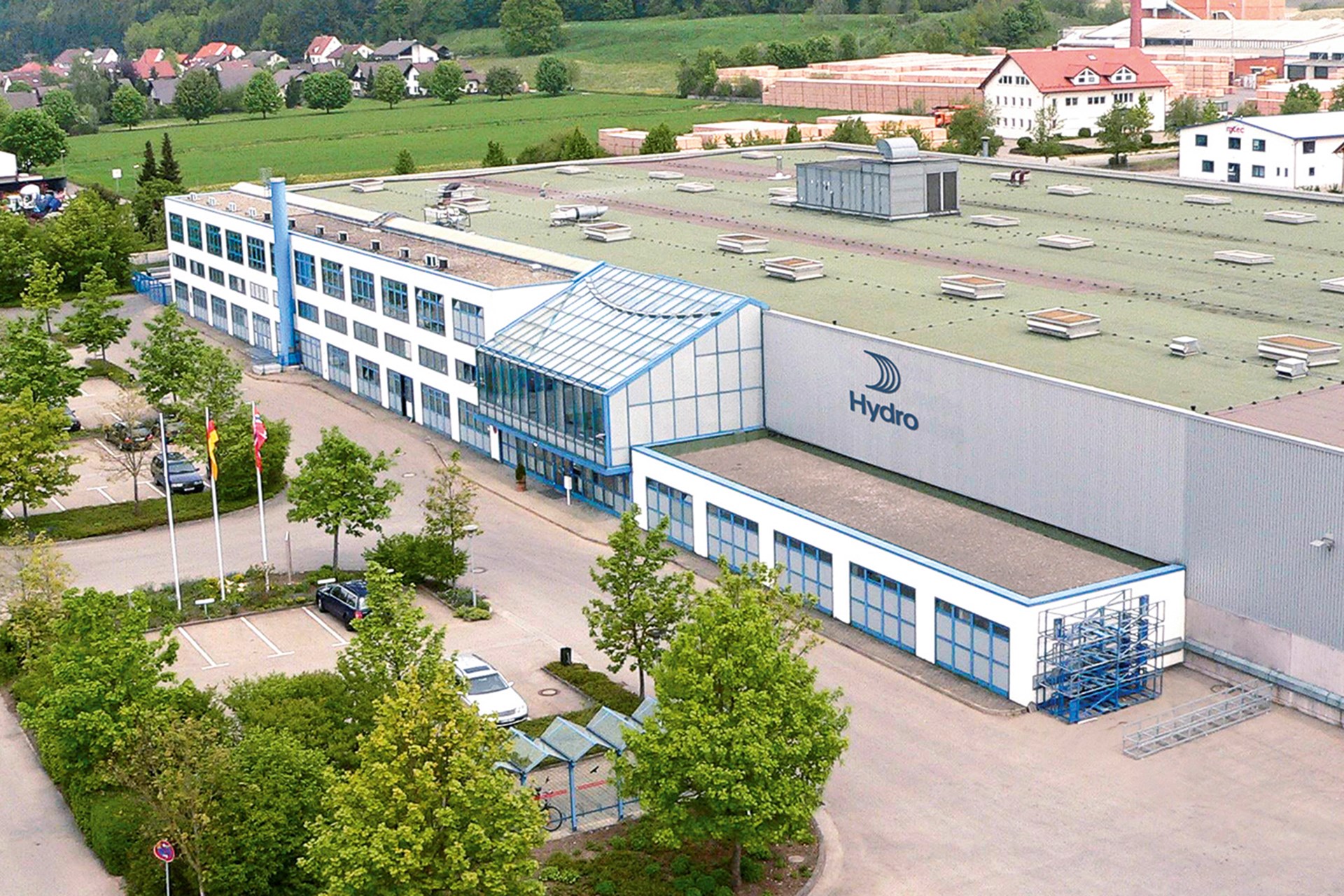After the leap in the German building systems market, Norsk Hydro built one of the most modern extrusion plants in Europe, in Bellenberg. The first extrusion billets in the new extrusion plant were pressed in July 1990. Hydro Aluminium Bellenberg GmbH was Hydro’s first plant to exclusively supply a building systems manufacturer. It was geared to providing for WICONA.
Operating round the clock, the Bellenberg extrusion plant produces highly functional precision profiles and special lengths for WICONA windows, doors and façades using customised equipment, which can then be put through their paces in the neighbouring Test Centre. The annual capacity was around 10,000 tonnes. In 2017, their workforce of around 100 employees, working a four-shift operation, processed 14,500 tonnes of aluminium.
Process
As a starting material, seven- to eight-metre lengths of alloy aluminium billets with an individual weight of around 600 kilograms are used, which are delivered several times a day. Trimmed to 700 to 800 mm lengths with a special saw, the “blocks”, as they are known, are firstly brought up to the optimum press temperature in an induction furnace before the actual extrusion takes place.
The desired shape achieved in just a single step happens with a 22-tonne press, in which the 470°-Celsius hot aluminium is pressed between two preheated equally tempered die, like through the eye of a needle. In a single process step, the material can be made into almost any shape required, which offers a variety of construction possibilities and also enables complex shapes to be produced in small batch sizes. Currently a total of around 3,000 active tools are stored in the paternoster racking, which are regularly used. All in all, there are about 8,500 different devices that they can fall back on.
After being cooled, the profiles are then stretched to release any stresses and to ensure the required straightness, and all the functional measurements and surface quality are checked.
It is then moved into the furnace for final hardening, and the profiles are sawn to the required lengths.
While some of the goods are then sent directly to be prepared for shipping, the rest are sent for further processing inhouse. Then, so that they can later satisfy the most stringent requirements for thermal insulation as window, door or façade components, they need to be bonded with polyamide insulation strips to prevent cold bridges between the aluminium bars. Impressively, the plant in Bellenberg generally has 80 different types of polyamide insulation strips in stock, which underlines the increasing complexity of the composite profile.
Ready for delivery: From Bellenberg, the finished aluminium and composite profiles are shipped via the Gerstungen Service Centre to WICONA customers all over the world.
